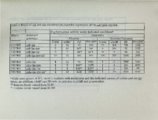| Description |
This thesis consists of experiments on the regulation of vitamin B12 synthesis in the bacterium Salmonella typhimurium. Vitamin B12 is one of the largest nonpolymeric molecules in nature. It is synthesized de novo by the enteric bacterium Samonella typhimurium, but only under anaerobic growth conditions. Most of the genes for vitamin B12 synthesis are clustered in a single large operon of about 25 genes, the cob operon. Surprisingly, deletions of this entire region do not seem to affect viability of cells grown under normal lab conditions. To investigate the reasons for maintaining this large amount of DNA, regulation of the operon has been examined. Part I of thesis includes that demonstrate that the cob operon is induced by propanediol during growth on poor carbon sources. Propanediol can be metabolized via a B12-dependent enzyme, propanediol dehydratase. This enzyme and other enzymes needed for the degradation of propanediol are encoded by the genes of the pdu operon, which maps adjacent to the cob operon. The pdu and cob operons are coregulated. Mutations that prevent induction of both operons were isolated and mapped to a gene lying between cob and pdu. This regulatory gene, pocR, is itself regulated by both global controls and its own protein. Part II of the thesis includes experiments that investigate the nature of these global controls. Induction on poor carbon sources is controlled by the Crp/cAMP system. This is the only global control system acting aerobically. Induction during anaerobic conditions is mediated by both the Crp/cAMP system and the ArcAB system, a two component regulatory sytem that senses the redox state of the cell. These conclusions were reached by analyzing the effects of mutations in these systems on expression of the cob, pdu and pocR transcriptional units. A model suggests that the gloabl controls affect pocR expression levels directly and the cob and pdu levels indirectly. When PocR protein levels are high enough, induction of the cob and pdu operons can occur in a propanediol dependent manner. These experiments suggest that the importance of vitamin B12 to Salmonella lies in propanediol metabolism . |























































































































